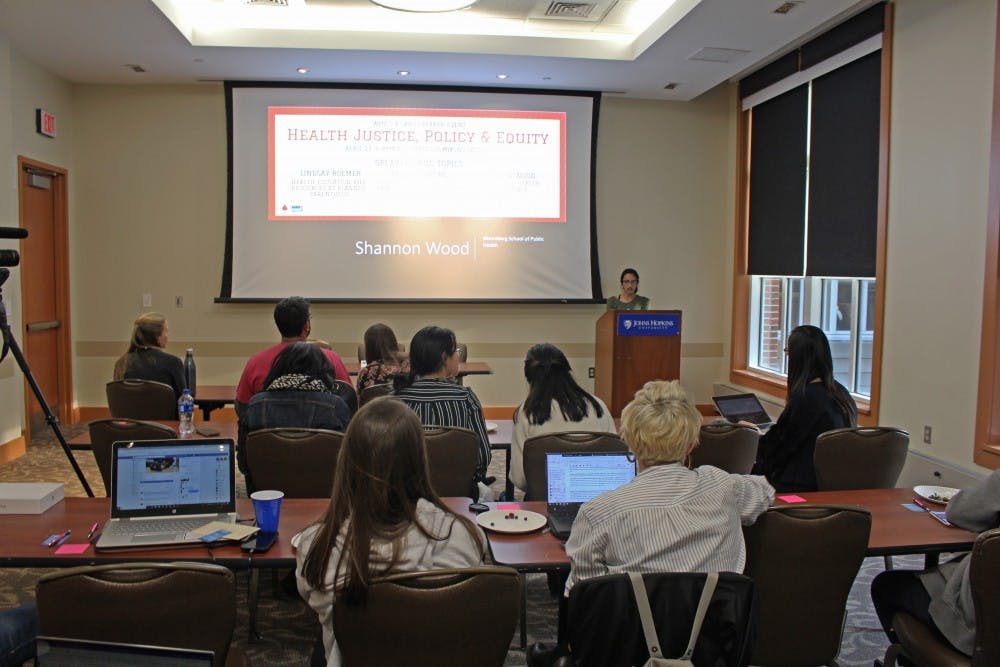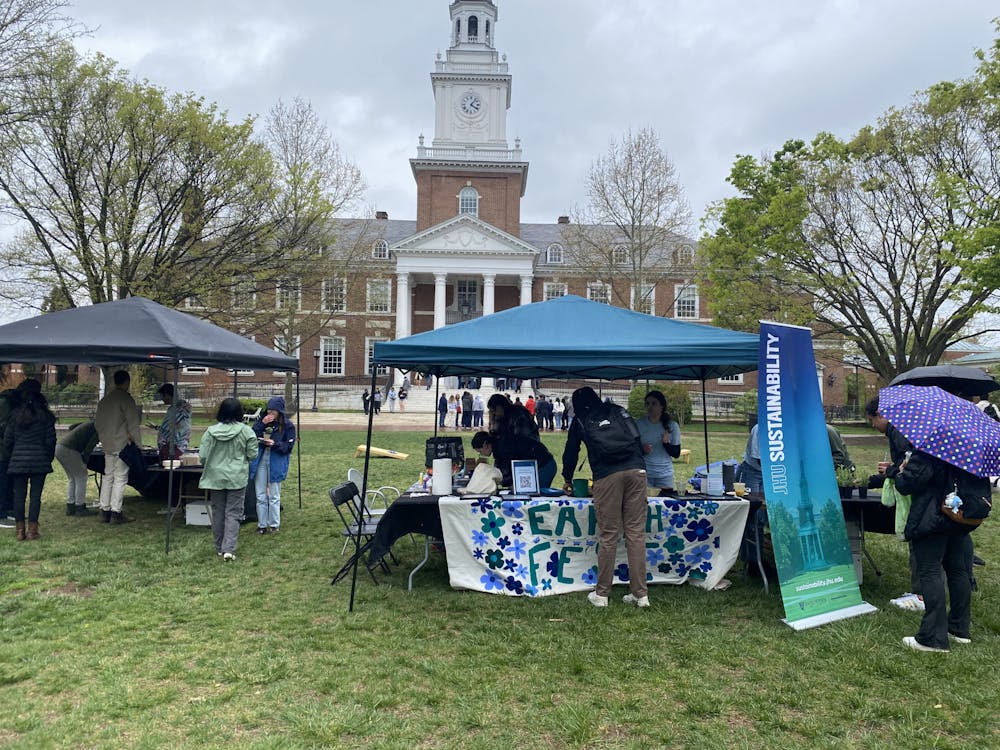Wings, a student group aiming to improve menstrual health and hygiene, and Sexual Assault Resource Unit (SARU), a student group advocating for increased awareness of rape culture and sexual violence, hosted a panel titled “Health Justice, Policy and Equity” on Wednesday. The panelists discussed barriers to menstrual and sexual health equity and the policies surrounding those topics.
The panelists included Lindsay Roemer, the education manager of Planned Parenthood of Maryland; Rahula Strohl, the public affairs specialist at Planned Parenthood of Maryland; and Shannon Wood, a Ph.D. candidate at the Bloomberg School of Public Health.
Senior Mayuri Viswanathan, co-president of SARU, noted that the motivation to hold the speaker event was driven by a desire to fill a gap in the conversation about the relationship between reproductive health and sexual violence.
“We lacked dialogue in talking about reproductive health from the perspective of sexual violence and how it actually plays a big role in the long term reproductive outcomes of people,” she said. “We saw this event as a good opportunity for collaboration and to see how these two issues are related.”
Viswanathan said that collaboration between the two groups was natural since they are connected through the Women’s Advisory Board. The board brings together the leaders of undergraduate student organizations focused on women and gender advocacy.
Junior Bridget Chen, co-founder of Wings, noted that the event broadened the scope of Wings and was its first foray into policies involving menstrual health.
“We have not yet tapped into the area of policy and how menstrual health falls into it, so this is one of the first steps to go forward into that area,” she said. “We are very grateful for having the speakers with us to help us get that started and participate in a conversation about policy.”
The first speaker was Roemer. She enumerated the preventative healthcare services that Planned Parenthood provides, including the testing and treatment of sexually transmitted diseases.
Roemer said that if students do not have health insurance, they can go into a clinic with student loan information. In addition, the price of service is determined based on a sliding scale. According to Roemer, college students receive services at a vastly reduced price, and often for free.
Roemer described how Planned Parenthood is working toward providing primary care. She explained that if a patient goes into a clinic with something like high blood pressure, the staff cannot treat it and instead the clinic has to refer the patient to another doctor.
“That [process] is essentially a barrier to care because that is another step they have to take, another doctor they have to call, another appointment they have to make. We want to make sure that we offer full care for every patient that comes through our door,” she said.
Next, Strohl talked about menstrual health in correctional institutions and public schools, and about the luxury tax on tampons — colloquially called the pink tax.
Strohl discussed how politics affect the reproductive healthcare services that patients are provided, especially to those receiving Medicaid. He said that the passage of the Hyde Amendment, which disallowed federal dollars to go to abortion services, negated the Roe v. Wade decision that legalized abortion.
“Abortion has effectively been illegal for poor people. If you cannot afford it, who cares if it is legal. It’s only been conceptually legal and not actually accessible,” he said.
Next, Wood focused her talk on reproductive health — particularly unwanted pregnancies. Wood has been conducting a case study in Nairobi, Kenya to investigate reproductive coercion. Reproductive coercion is when a partner interferes with contraceptive or reproductive decisions through threats or direct intervention, such as manipulating contraceptive devices.
Wood cited a study which found that globally, on average, women who have experienced intimate partner violence have a one in eight chance of having an unwanted pregnancy. Wood explained that one of the main mechanisms of unwanted pregnancies is reproductive coercion.
She is investigating if reproductive coercion in Kenya occurs in the same way as it does in the U.S. She is also testing to see if harm reduction strategies which are currently used in the U.S. are effective in Kenya.
Wood and the other two speakers represent a wide range of expertise on menstrual health and sexual violence, according to Giuliana Lee, a co-director of Wings.
“Surrounding menstrual stigma is the fact that people don’t respect those who menstruate enough to be able to discuss health options or allow them to make their own health choices. It is a hot topic and we thought it would be interesting to speak on the topic from a couple different perspectives,” she said.
















Please note All comments are eligible for publication in The News-Letter.